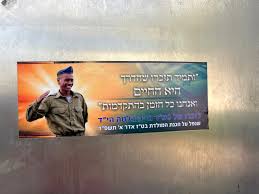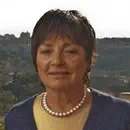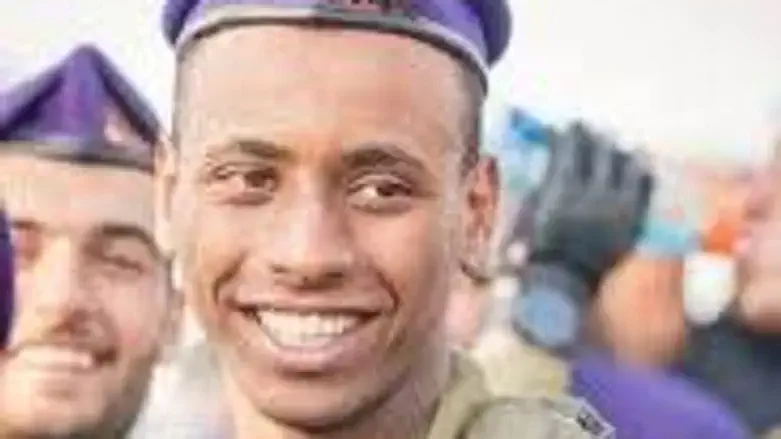
“It’s still hard to wrap my head around what happened,” Batsheva Belete says, when retelling her beloved son Neriya Hy"d’s part in the Swords of Iron War.
“Neriya was home on October 7. Suddenly, a friend banged on the door yelling for him to come out. All they knew at that point was that the police station in Sderot had fallen into terrorist hands. He dressed and went outside, a neighbor who was in the Border Police drove south with him, and he made contact with the soldiers in his former squad who were already on their way towards the Gaza envelope communities. Neriya was a commander, but there he simply fought alongside his men in Kibbutz Nachal Oz where they went house to house and saved people. Right in the line of fire. Someone who lived there and works at Haaretz newspaper came all the way to Shavei Shomron for a shiva visit to thank us for his heroism. He told us that Neriya and his friends saved at least 400 people that day.
"He survived that battle and when he entered the Gaza Strip, was promoted to 1st Sergeant by the company commander who asked for him by name. But on February 24th, 16th of Adar I, Neriya fell in Khan Yunis. He was first to engage the terrorist group his squad encountered and saved his soldiers' lives with that heroic act, but was shot dead by one of the terrorists. He was 21 and a half years old.”
“How do I say goodbye to a dear son? How do I begin to talk about you in past tense?” Batsheva cried aloud at his funeral. And hundreds of mourners wept with her.
The Talmudic Sages said that "the Land of Israel is acquired through suffering" (Tractate Berachot 5a), and the Jews of Ethiopia are proof of that saying's eternal truth.
By 1984, thousands of the Beta Israel, as Ethiopian Jews are called, had fled Ethiopia and braved a month-long desert trek to refugee camps in Sudan. Courageously, they undertook the dangerous journey on foot in the hope of reaching the Jerusalem of which they dreamed, and it is estimated that as many as 4,000 were killed by marauders, smugglers and corrupt Sudanese officials, or died from illnesses contracted on the long, hot, desert walk.
Beginning in November 1984, Sudan secretly allowed Israel to evacuate the refugees using Trans European Airways planes (TEA) which normally took Muslims to Mecca, so the semi-covert operation did not garner unwanted attention. Close to 8000 Jews flew TEA to Brussels and on to Israel in a joint effort - of the IDF, CIA, the US Embassy in Khartoum, and US Coordinator for Refugee Affairs, Richard Krieger whose plan it was - called Operation Moses as it resembled the Israelites’ sojourn from Egypt to the Promised Land. The flights ended when Arab countries pressured Sudan to stop.
For the Jews of Ethiopia, a Diaspora cut off from the rest of the Jewish world, the word Jerusalem conjured up images of a transcendental holy city, not an earthbound one, and their longings to reach it were part of the yearly Sigd celebration on the 29th of Heshvan, now an official Israeli holiday, when they would ascend to the highest spot in their villages and pray longingly, looking in the direction of the city. Fittingly, Jerusalem Liberation Day, the 28th of Iyar, is the day on which the Beta Yisrael mourn all those who did not survive the trek to Sudan. Today, they also mourn their heroic sons, those who fell in defense of the country that their elders suffered life-threatening dangers to reach.
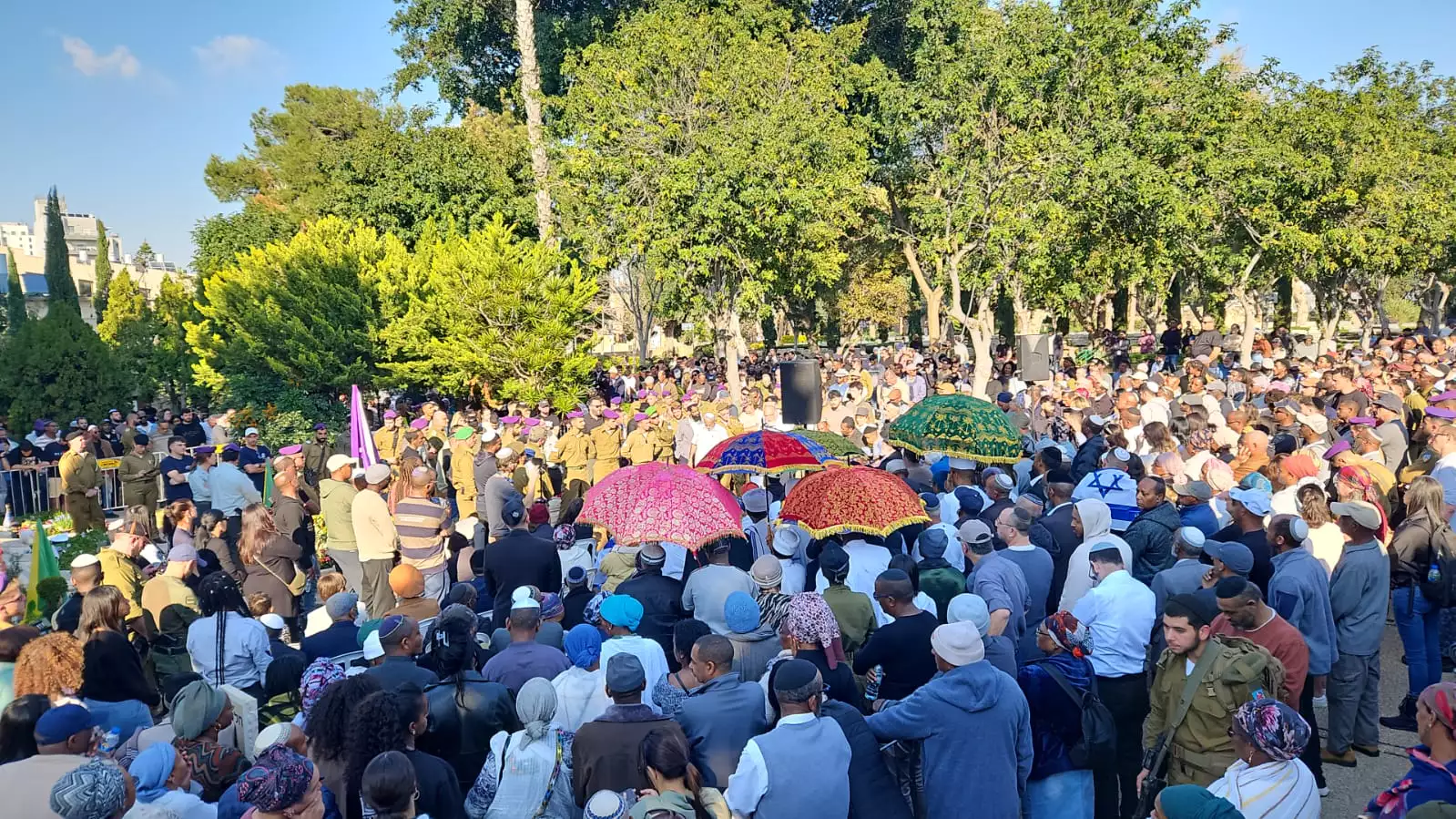
Rachamim and Batsheva Belete were children when they traversed Sudan’s difficult terrain with their families. Rachamim’s father was murdered by Sudanese government officials simply because he was a proud Jew who tried to improve the living conditions of the refugees. Their son, 1st Sergeant Neriya Belete Hy”d, Givati Brigade Reconnaissance Unit fighter, fell in Gaza on 16 Adar, February 24, 2024. At Neriya’s funeral, Rachamim eulogized his son saying: “I know my father would be happy to see his grandchildren fighting for this land. He would be proud that Neriya, his grandson, gave his life defending the country he yearned for.”
And on Jerusalem Liberation Day 2025. the Belete family dedicated a Sefer Torah in their beloved son’s memory.
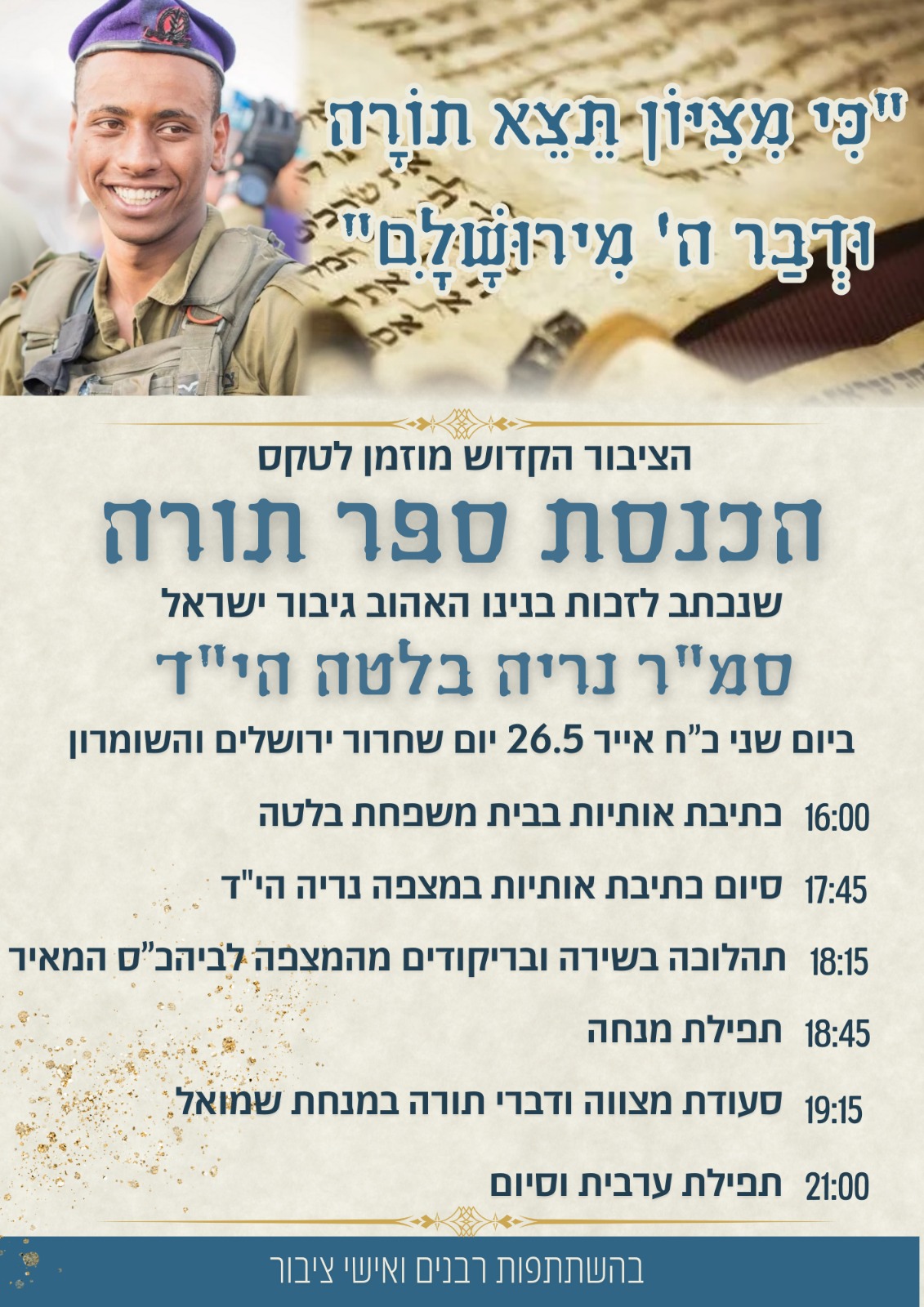
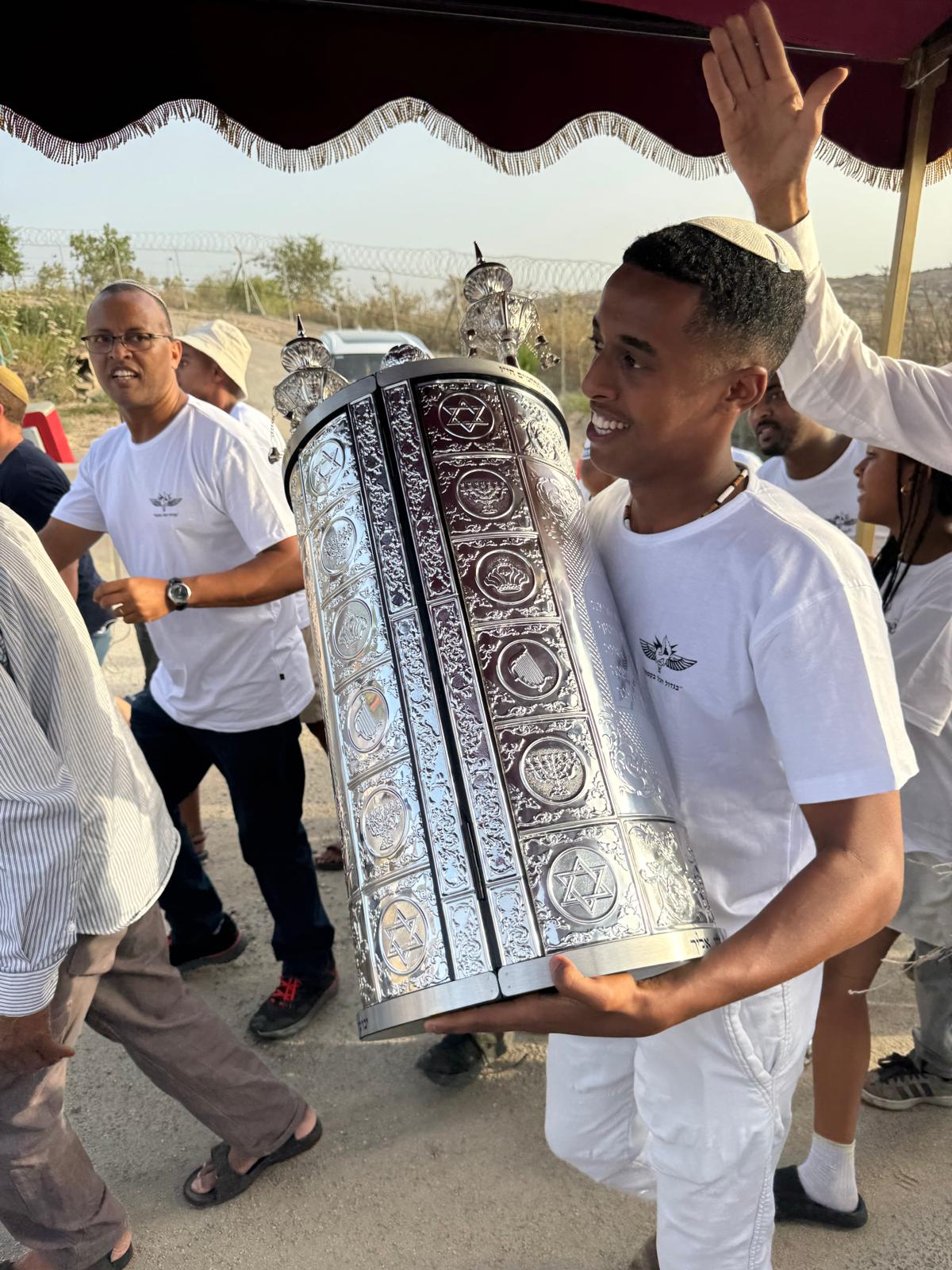
Neriya Hy”d was born in Shavei Shomron, the community in Samaria where his parents have made their home for 23 years after spending the first year of their marriage in the Binyamin community of Neve Tsuf. His mother Batsheva lived in Petah Tikva while studying Special Education at Orot Yisrael Teacher’s College in Elkana, and his father, Rachamim, an alumnus of Rabbi Chaim Drukman zts”l’s hesder yeshiva in Or Etzion, was in charge of religious affairs at the immigrant absorption center in Neve Tsuf after serving in the Givati Brigade - as his sons would later do. Today, Rachamim works in the Conversion Authority attached to the Office of the Prime Minister. When Neriya Hy"d fell, Prime Minister Netanyahu and his wife Sara came to pay a shiva call.
Netanyahu wrote: "Sarah and I paid a condolence visit to the home of fallen IDF soldier Neriya Belete, who fell in the Gaza Strip last week. Neriya was an outstanding soldier, a wonderful young man from a special family. I know Rachamim, his father, who works in the Prime Minister's Office Conversion Authority. We embraced the family, trying to strengthen them in their time of grief, promising that we would not stop until victory is achieved."
Looking back to her student days, Batsheva laughingly recalls that various people tried to get her to meet Rachamim and how when they finally succeeded, the two just clicked. Their eldest child was born in Neve Tsuf, and later they bought a home in Shavei Shomron. Neriya and five younger siblings were born after the move.
Batsheva’s early life is the story of immigrant youngsters whose self-confidence is initially shaky and whose potential may not be realized due to the many obstacles they face. “I wanted so much to be like everyone,” she says, “that I didn’t protest when Interior Ministry bureaucrats changed my name, Bazatu, to Batsheva, but now I use both.” She attended Emunah’s Elisheva high school in Pardes Chana, but because she came to Israel at the age of 8, she lacked the basics of early childhood education and attaining a full matriculation diploma was a challenge. But her principal believed in her, and financed her studies while she did national service in a special education facility. Batsheva earned full High School matriculation and went on to Orot College to major in Special Education.
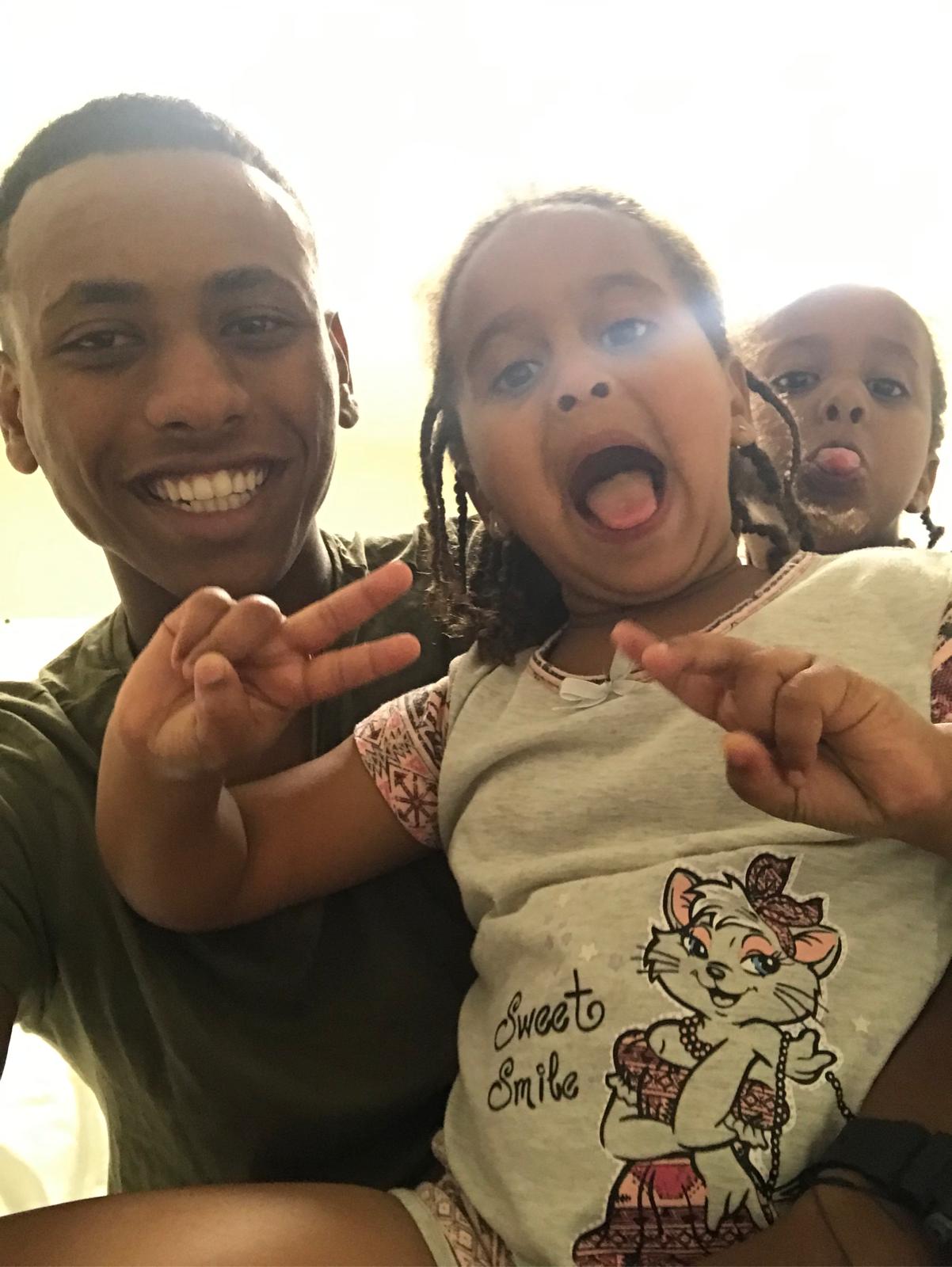
“Neriya”, she says, “was full of curiosity as a child and loved animals. His favorite spot in Shavei Shomron was the petting zoo - he preferred it to sports. He was enamored with the IDF and liked to dress up as a soldier.” When he did not master reading by the end of first grade, Batsheva, whose field it is, recognized a learning problem and took him for help, making sure thereafter that he attended a school which encouraged him. By the time he reached high school, he had long overcome the problem and was the only one of his friends accepted to the Regavim agricultural yeshiva high school in Tirat Tzvi in the Beit Shean Valley, a highly regarded school where teens rise at 5 am to do agricultural work before classes. He missed his childhood friends, but decided to go there anyway and soon felt at home, developing close new friendships and telling his parents he had made the right choice, because the school inculcated values and love for Eretz Yisrael.
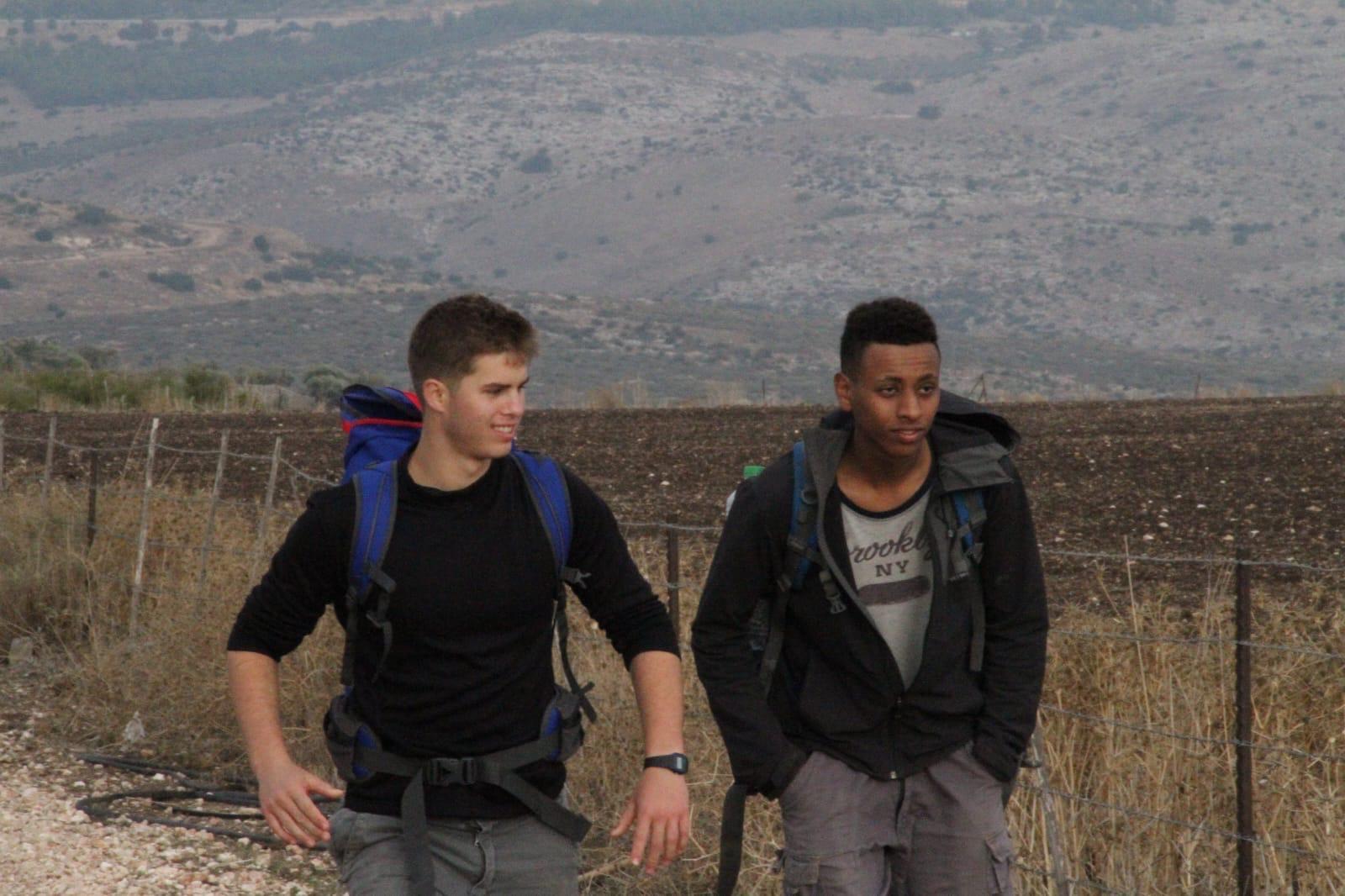
Neriya loved to hike to the nearby springs and trails and his friends recall how he would take his backpack and start off with them, stop every few minutes “just to breathe the air of Eretz Yisrael” in his words, and then run to catch up with them. He grew up to be an idealist who wanted Israel to declare sovereignty over the entire Jordan Valley, a region he especially loved. His parents recalled how “summer vacations found him volunteering to work there or on the pioneering farms eked out on the hills of Samaria, doing whatever needed to be done. He volunteered in Shavei Chevron and Itamar, and as a guard for the Shomer Hachadash that protects farmers from Arab marauders and thieves. The physical conditions were rough, but that did not matter to him. He ploughed, pruned, planted and harvested, living the pioneering dream of avoda ivrit, Jewish labor. He did not go out there to have a good time, would come home when he could, but all he wanted to do was to give more and more of himself.”
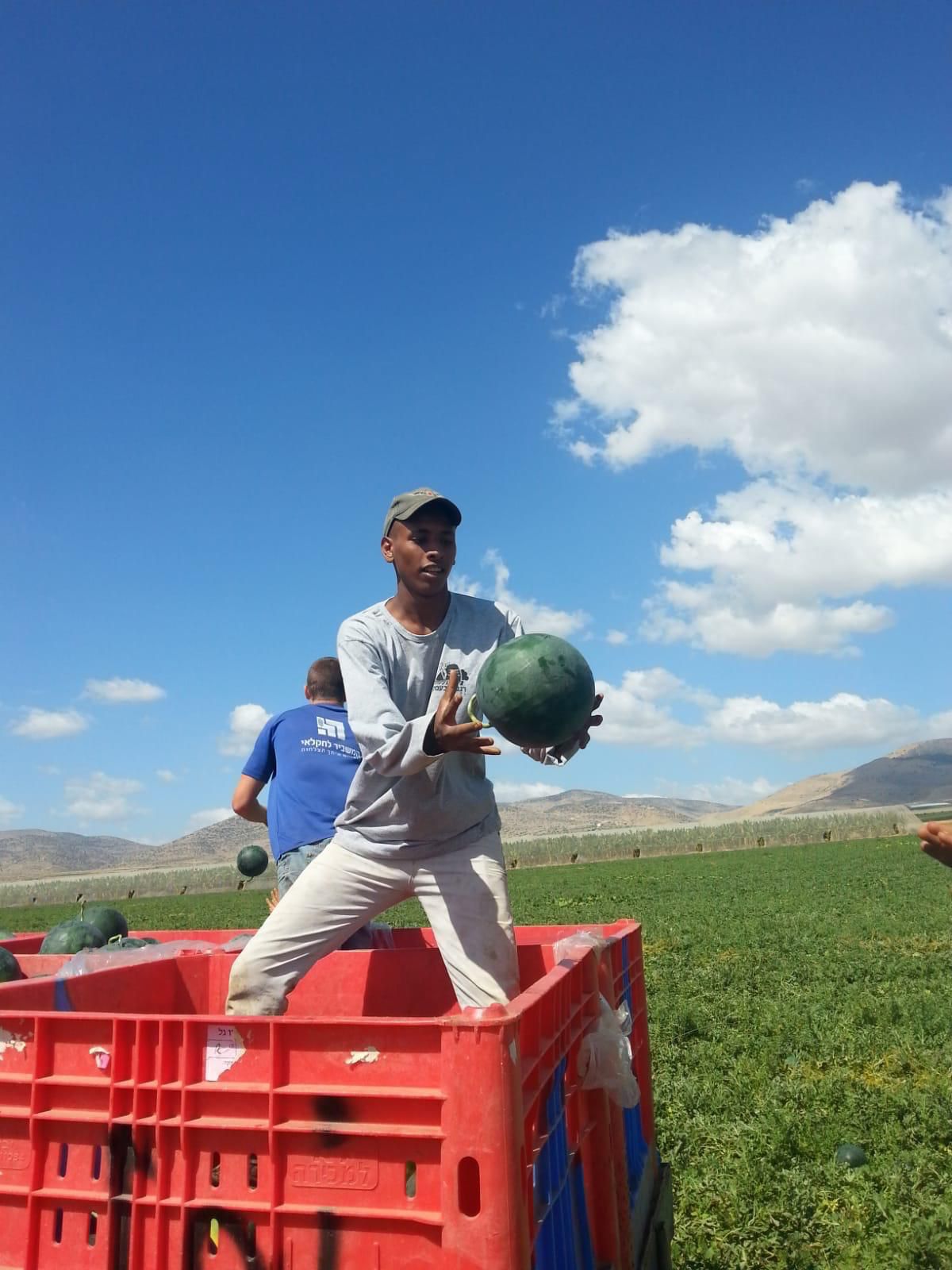
After high school, Neriya volunteered for a year of national service at the Mikve Yisrael Youth Village religious wing and was appointed 12th grade dorm counselor. His students remember a caring madrich who gave his all, spent hours listening to each of them, helping them find their way.
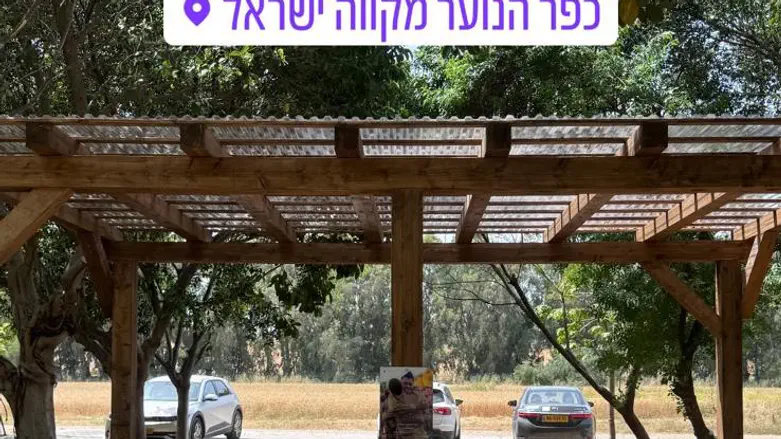
He was accepted to the Givati Brigade’s elite reconnaissance unit where he finished in first place among all those training with him. He became the commander’s right-hand man and liaison officer, and the soldiers said that “he gave each of them the feeling that he was their best friend.”
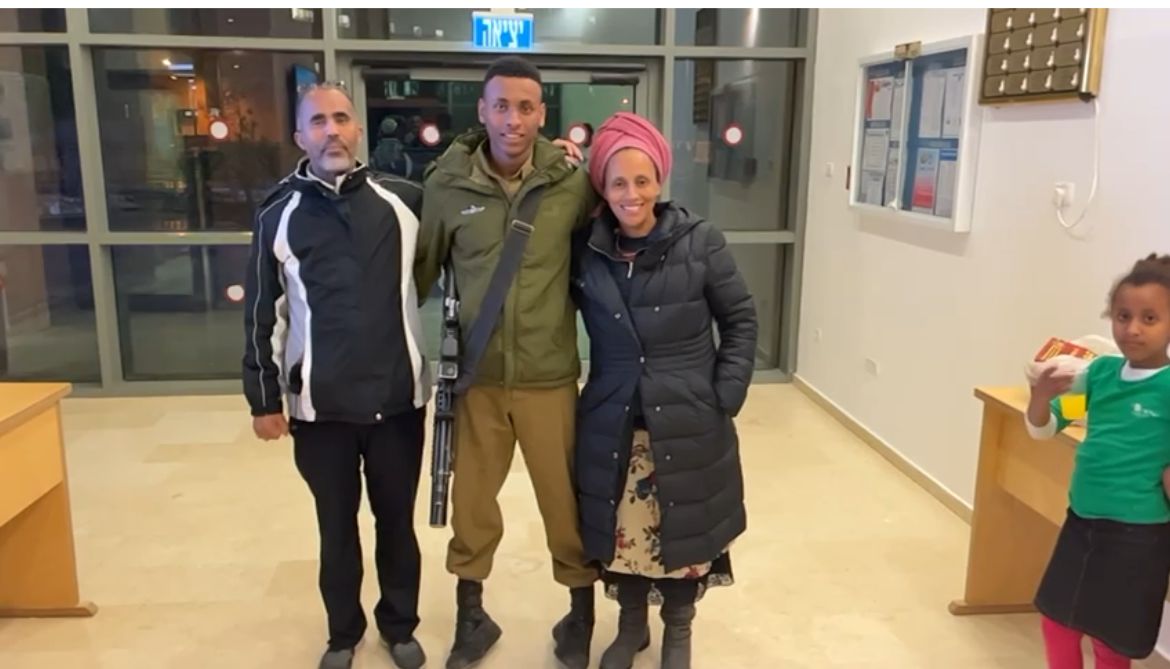
During the shiva, Batsheva says, the first mother who came told her to be prepared to hear that sentence from each soldier. And that is what happened. Neriya had outstanding interpersonal skills, although he was quiet and shy and did not try to stand out.
“His outstanding leadership was not based on a show of power, but on a personality that knew how to connect to people. He did not look down at us, he brought us up to his level,” the fighters said.
Neriya’s strengths were recognized and at the end of two years he was sent to a squad commander course. Although he was happy where he was, he put everything he had into becoming the best commander he could be.
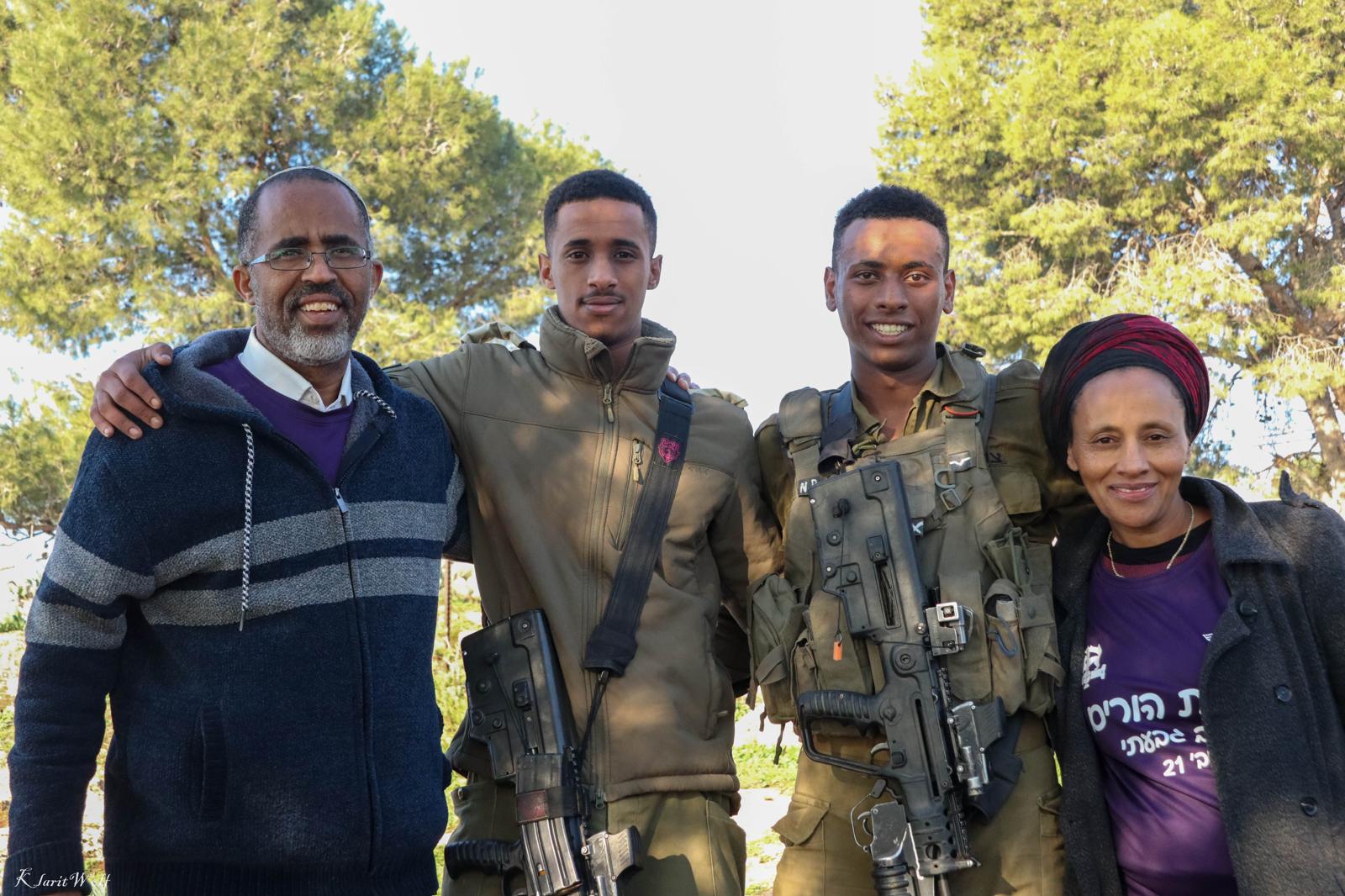
Batsheva recorded some of the things the soldiers under his command said about him:
-During training, when we had a long stretch to run, Neriya would always say - hey, chevre (pals) let’s see us at the head of the line…
-He knew how to ask us the right questions, we could talk to him for hours, he always cared.
-When his friend became the battalion commander’s driver for a while, he made sure, despite the fighting, that the commander and driver had adequate food.
-When a parent brought us food, he made sure that everyone had a portion before he ate himself, although he was the commander.
-In Gaza, sometimes we were hungry. Once Neriya managed to provide soup for us and only then prepared some for himself. He must have been starving but he always put others ahead of him.
-One of his friends was not given leave for Neriya’s funeral, but came to the shiva house and told the family that “Neriya encouraged me, told me to hold my head high even when things are hard. He chose me to lead the group in their running exercises, and I said that I couldn’t do it, but Neriya said ‘Yes you can’ - and I did.”
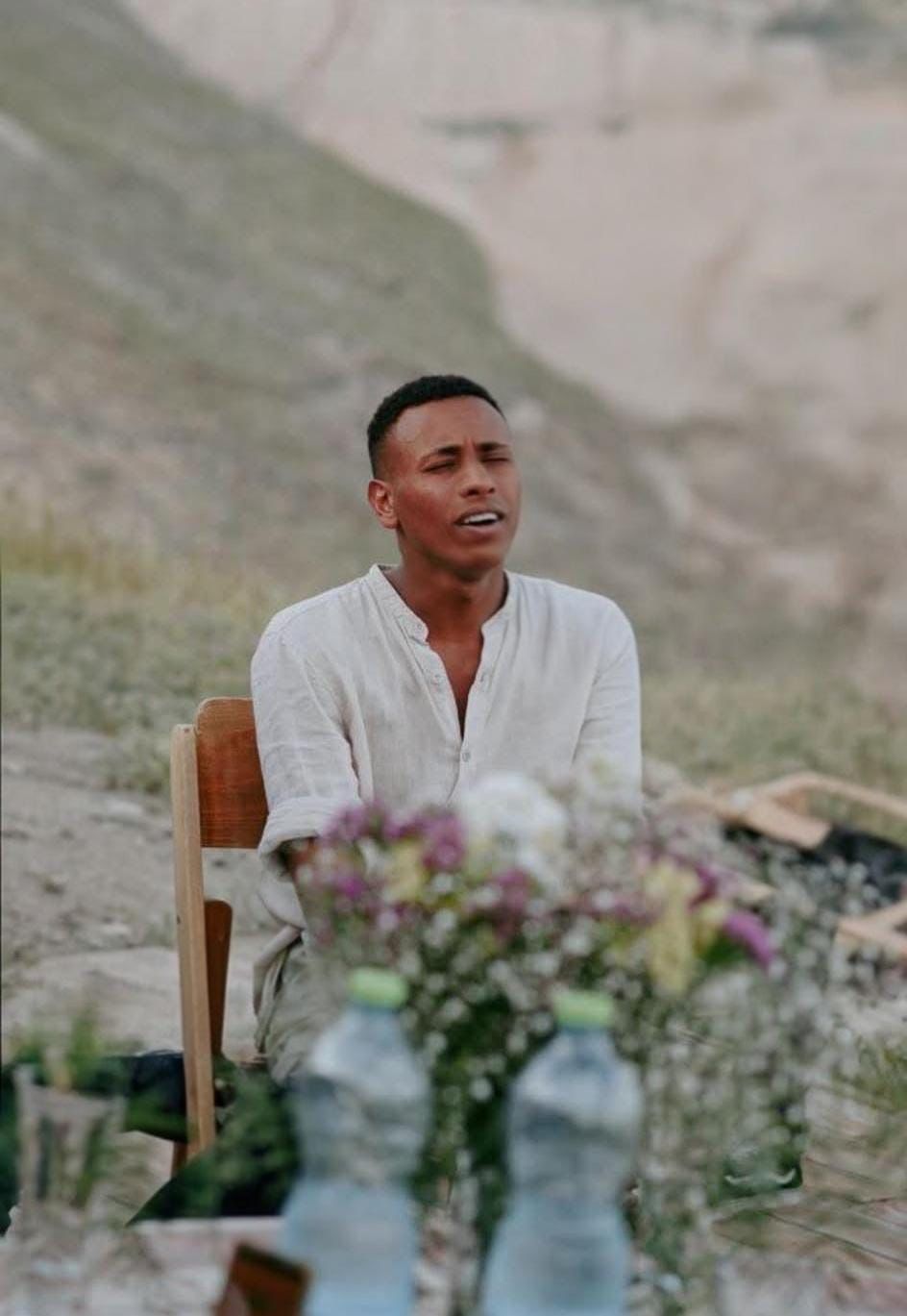
Batsheva sat next to me in shul at a OneFamily Shabbat retreat at which I volunteered several months after Neriya Hy”d fell. Rachamim was one of the 150 bereaved fathers there who said Kaddish together for their sons at the end of the service, bringing all of us to tears.
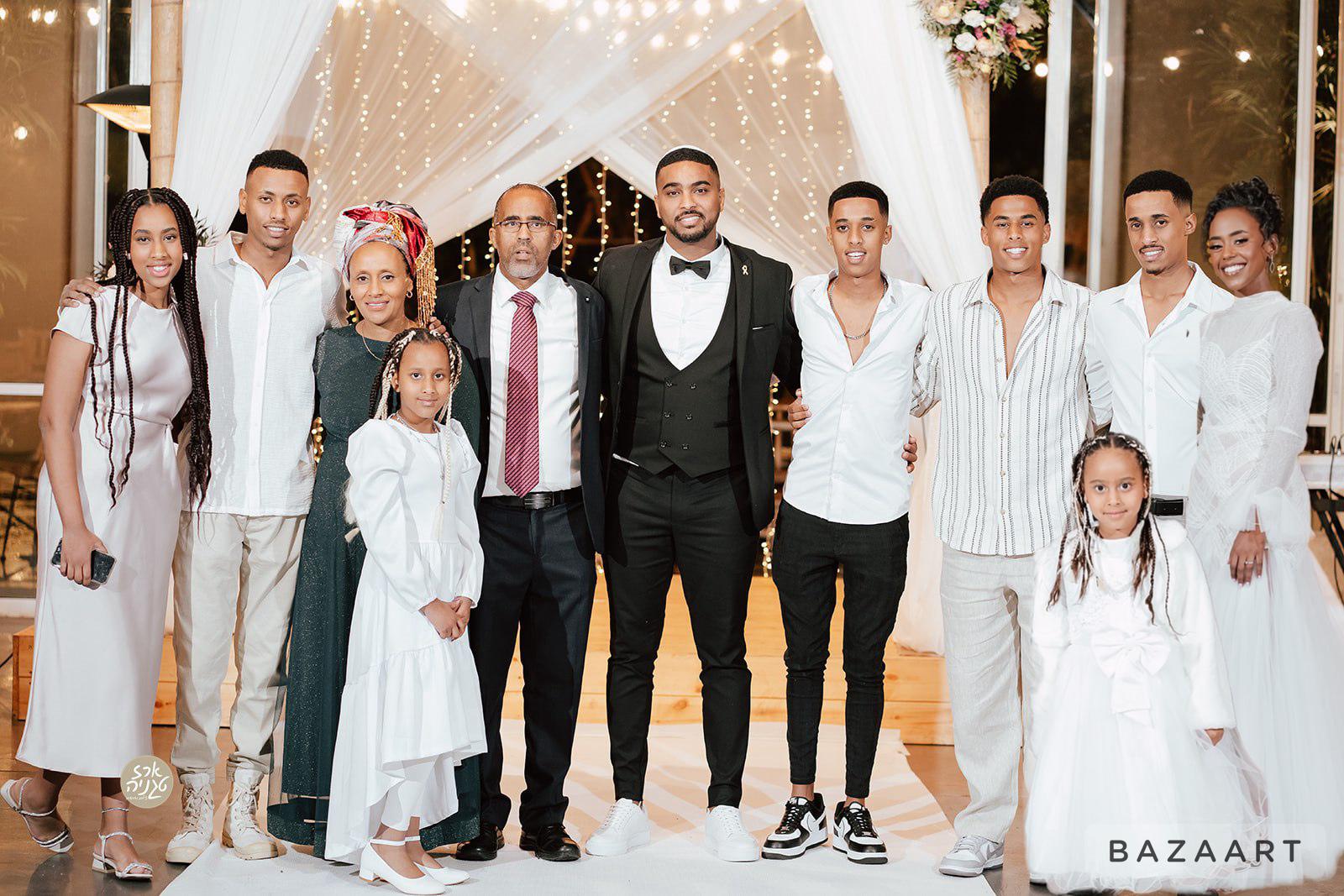
“I miss him so,” Batsheva said as she wept. “He is in my mind every minute. I know It will never go away, but being here with others who understand me because they are going through the same thing gives me the strength to go on. And I am comforted remembering how much Neriya believed in the necessity of this war. He said it was the most just war imaginable. And he gave his life so that we can continue to live.”
